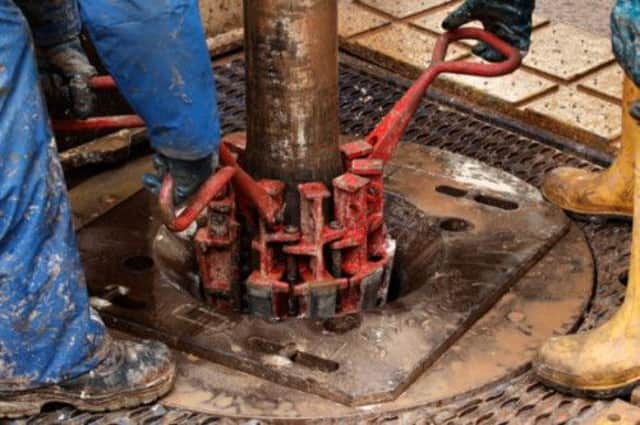Greenpeace plans legal challenge against fracking


The campaign group said it expected thousands of people to join the “legal block”, so that a series of “no go areas” will be set up across England.
Greenpeace spokeswoman Anna Jones said fracking was a “desperate ploy” by the Government to keep the UK hooked on fossil fuels, adding: “Fracking is risky for local environments, risky for our water supplies and risky for the global climate. People are right to stand up and say ‘not under my land you don’t’.”
Advertisement
Hide AdAdvertisement
Hide AdGreenpeace said a number of residents in areas of potential fracking sites were joining the campaign.
Lawyer Kate Harrison of Harrison Grant, said: “The common law on this is clear. If fracking companies don’t seek and receive permission for drilling under people’s homes they will be liable for trespass.
“Companies would do well to respect people’s rights and not push on with drilling plans where they’re not wanted.”
Eve McNamara, a resident who lives near a site in Lancashire said: “I’m joining the legal block because fracking will be an absolute disaster for Lancashire. I hope sense will prevail and the industry will leave, so the North West can concentrate on renewable energy.”
Andrew Pemberton, a Lancashire dairy farmer said: “I’m supplying milk to 3,000 households, and if for any reason my water became contaminated, my business would be ruined and my livelihood destroyed, as well as the livelihoods of the 16 families who work for me. Fracking is dangerous and short-sighted. We should be keeping this gas in the ground.”
Karen Ditchfield, a company director and resident near the Singleton site in Lancashire said: “My husband and I are joining the legal block because we’re worried and frustrated about what’s going on. No one has asked us if they can drill under our home and land. But this is not just about my life, it is my children’s lives, and what we’re leaving for people for years to come. More effort should be put into safer and longer-term energy sources.”
Opponents claim water used in the fracking process will be contaminated and could enter domestic supplies.
Fracking, or hydraulic fracturing, involves the injection of highly pressurised fluids into shale to extract gas.
Advertisement
Hide AdAdvertisement
Hide AdIt was temporarily banned in the UK after it was blamed for two earth tremors in Blackpool in 2011.
A government review has concluded fracking is safe if adequately monitored.
Anti-fracking protests were held in the summer in the West Sussex village of Balcombe.
SEE ALSO: